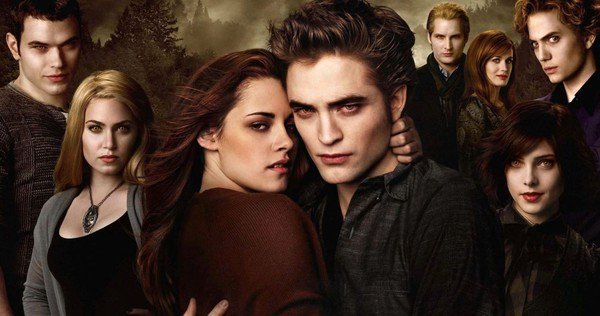
Bella Swan, for all the polarized opinions she evokes, remains an indelible figure in the cultural zeitgeist, a seemingly unassuming girl thrust into a world of ancient secrets and mythical beings. Often characterized as a “blank slate,” a vessel for reader projection, a deeper examination reveals her not as an absence of character, but as a compelling study in paradox. She is an ordinary girl in an immortal world, yes, but more profoundly, she evolves into a potent symbol of a love that dares to choose, shaping her own destiny with a quiet, yet formidable, resolve.
Bella’s defining characteristic, initially, is her profound ordinariness, a quality that serves as a crucial anchor in the fantastical currents she navigates. She possesses no extraordinary talents, no innate magic, no striking beauty beyond what Edward perceives. Instead, she is prone to clumsiness, internal awkwardness, and the mundane concerns of a teenager relocating to a perpetually overcast town. Her internal monologues are relatable in their self-deprecation, her anxieties familiar in their domesticity – fitting in, protecting her father, surviving high school. This quiet normalcy stands in stark contrast to the ethereal perfection of the Cullens, with their flawless complexions, superhuman grace, ancient wisdom, and formidable powers. Bella, with her beating heart and vulnerability, is the raw, human element in a tapestry woven with centuries of immortal existence. This very ordinariness, however, is not a weakness but a narrative strength. It grounds the fantastical, making the stakes real and the journey relatable. Her human fragility highlights the inherent danger of her situation, inviting the audience to experience the immortal world through the eyes of someone utterly unqualified for its perils, yet compelled to face them.
Paradoxically, it is this very ordinariness that makes her irresistible to the immortal world and, ultimately, makes her powerful. Her distinct scent, the rhythmic thrum of her human heart, the very essence of her mortality, is what captivates Edward, making her a singular focus in his immortal existence. Her lack of defenses necessitates fierce protection, forging unbreakable bonds of loyalty with both the Cullens and Jacob Black. Her vulnerability drives much of the narrative’s tension, from the hunt by James to the machinations of Victoria and the looming threat of the Volturi. She isn’t just a passive bystander; her presence actively stirs the immortal pot. The ancient world of vampires and shapeshifters, accustomed to its own timeless rules, finds itself reacting and adapting to a single, fragile human girl. Bella, through her sheer humanity, becomes a gravitational force, altering the trajectory of beings who had otherwise ceased to change.
Beyond her mundane beginnings, Bella truly transcends her ordinary status through her fierce, unwavering capacity for love and her audacious choices. Her love for Edward is not a gentle unfolding but an absolute, unshakeable conviction, a conscious decision made in full awareness of the profound dangers and the radical life changes it would demand. She chooses him, a vampire, knowing it means severing ties with her human past, risking her life, and embracing a destiny fraught with peril. This is not a passive falling in love; it is an active, almost defiant, assertion of will. When Edward leaves her, her grief is devastating, but her love never falters; it simply retreats, only to surge back with renewed force when he returns. Even her complex, painful affection for Jacob is a testament to her profound emotional depth, culminating in a difficult but clear choice of her heart. This is a love that looks beyond the monstrous exterior, beyond societal norms, beyond the instinct for self-preservation, and dares to embrace the soul of another, no matter the cost.
Her ultimate power, then, lies in her agency to choose her own destiny, shaping not only her future but influencing the immortal world around her. Bella is not dragged into immortality; she actively, passionately demands it. Her desire to become a vampire is born not of fear, but of an unwavering commitment to equality with Edward, a pursuit of permanence in a love she knows to be eternal. This isn’t a reluctant acceptance; it’s a deliberate and powerful choice, transforming herself into a being uniquely suited to thrive in her chosen world. Her decision to carry Renesmee, despite the unimaginable risks, is a testament to her profound commitment to her chosen path and future, further cementing her role as a creator of new possibilities within the immortal realm. Faced with the tyrannical Volturi, she stands resolute, a newly minted vampire who, with her extraordinary shield ability, defends her family and, in doing so, defies an ancient power structure. Bella, the clumsy human, becomes Bella, the formidable vampire, a leader and a protector, not by birthright, but by choice.
Bella Swan, therefore, is far more than a “blank slate.” She is a testament to the transformative power of love and choice, proving that even the most unassuming individuals can forge immortal legacies. Her initial ordinariness serves as a relatable entry point, allowing audiences to connect with the incredible journey she undertakes. Her subsequent unwavering commitment to a love that defies logic and her deliberate choices to embrace an extraordinary destiny elevate her to a symbol of radical agency. Bella’s narrative illustrates that an ordinary heart, when plunged into an immortal world, can, through sheer will and the audacity to choose, not only survive but thrive, becoming a powerful force that reshapes the very fabric of eternity. She is, finally, the girl who dared to choose, and in doing so, chose her own immortality.
